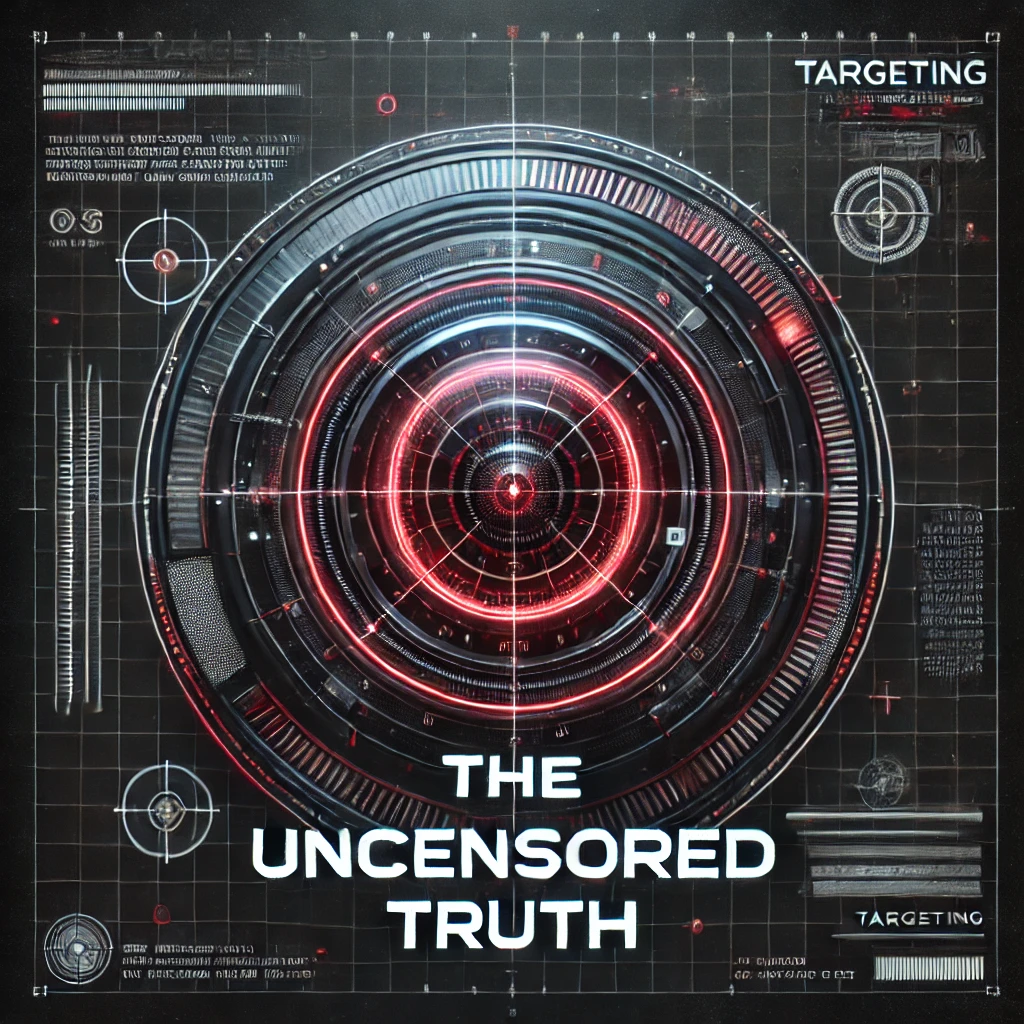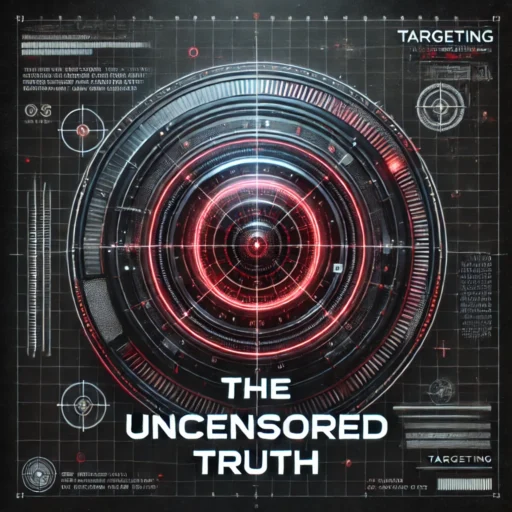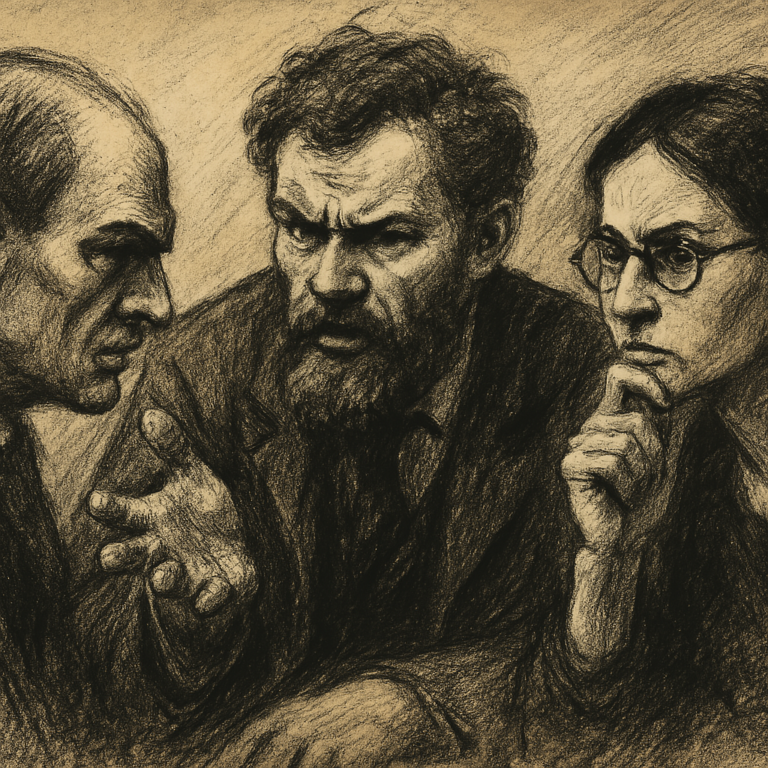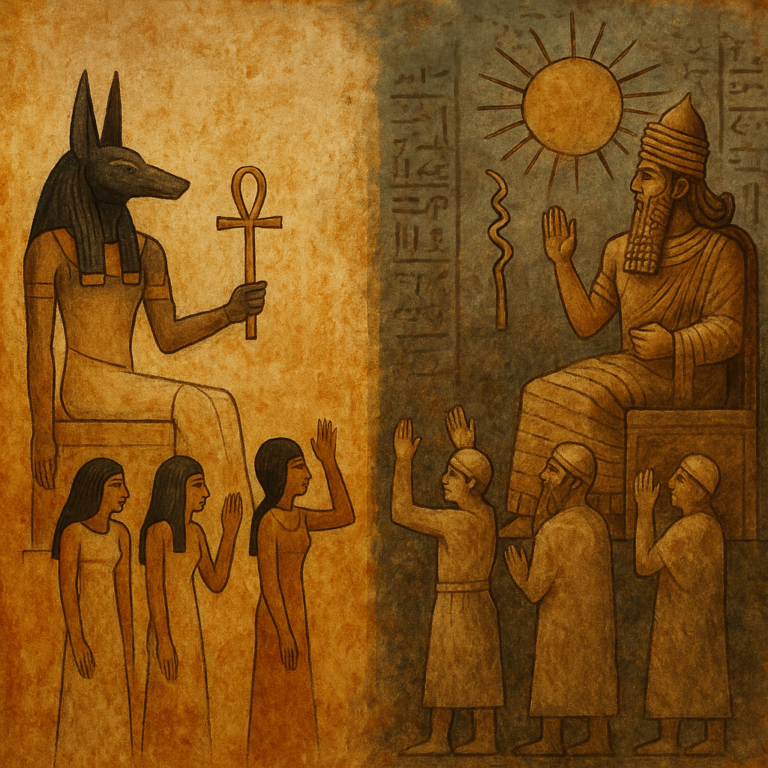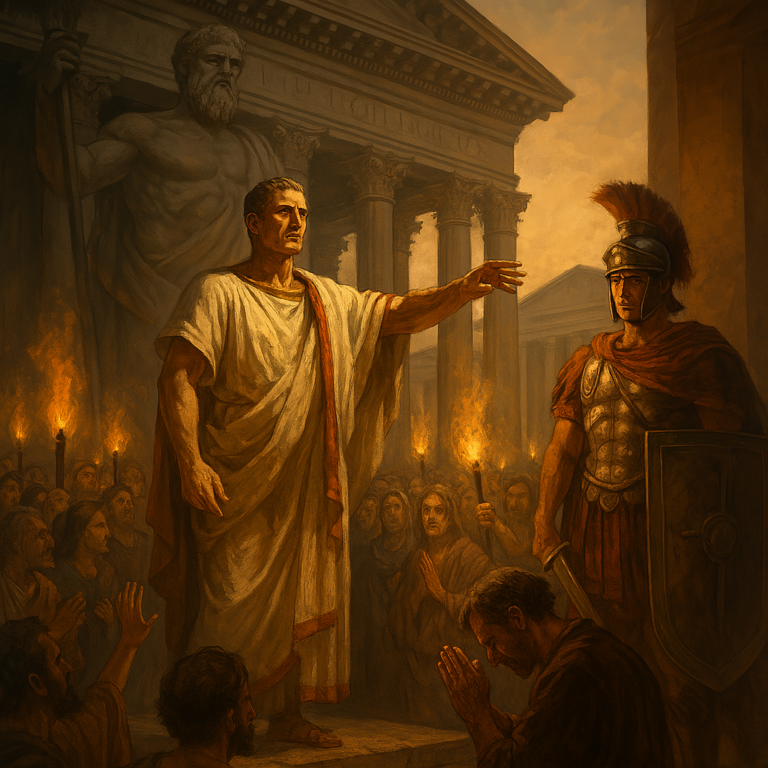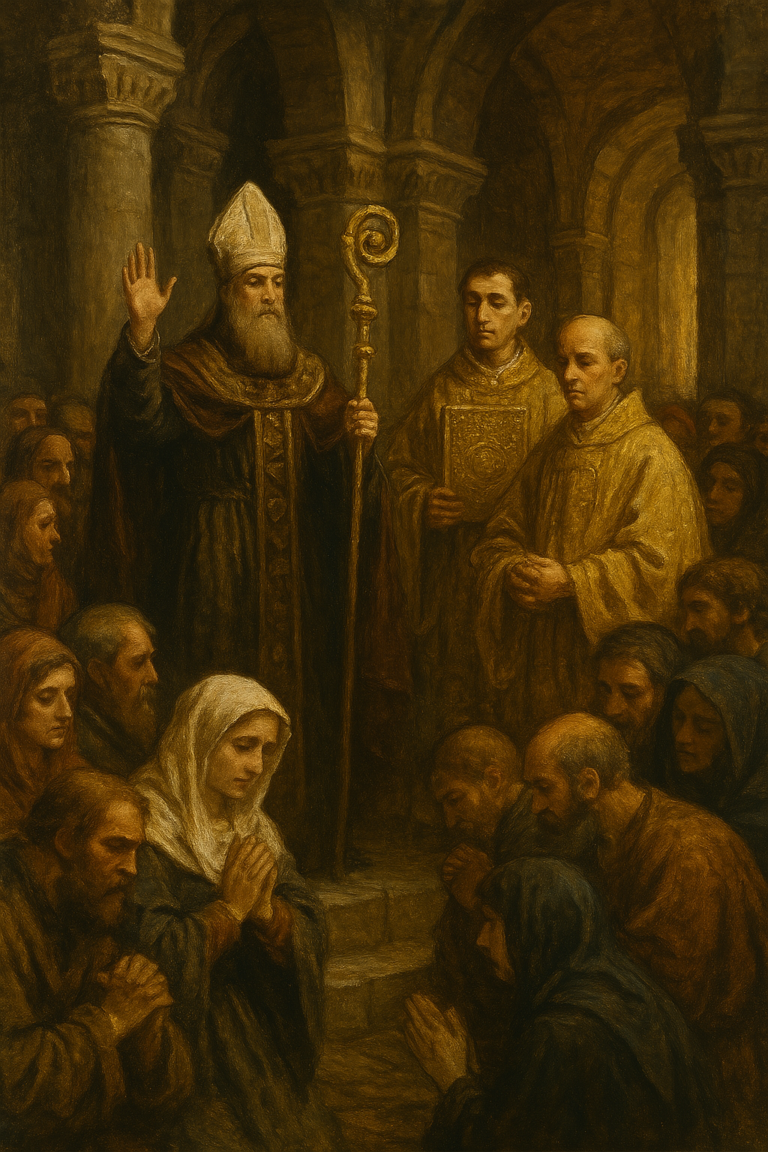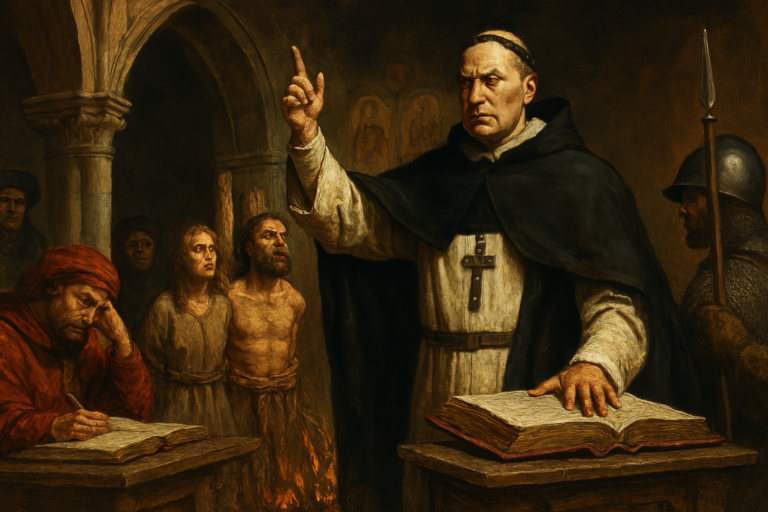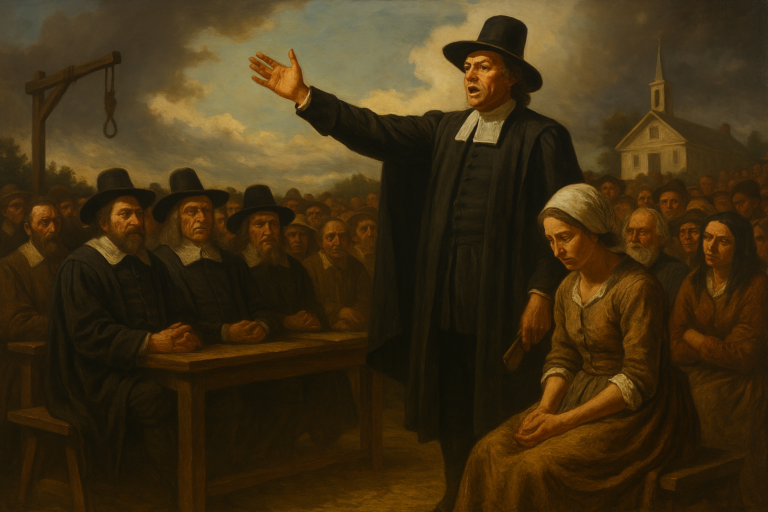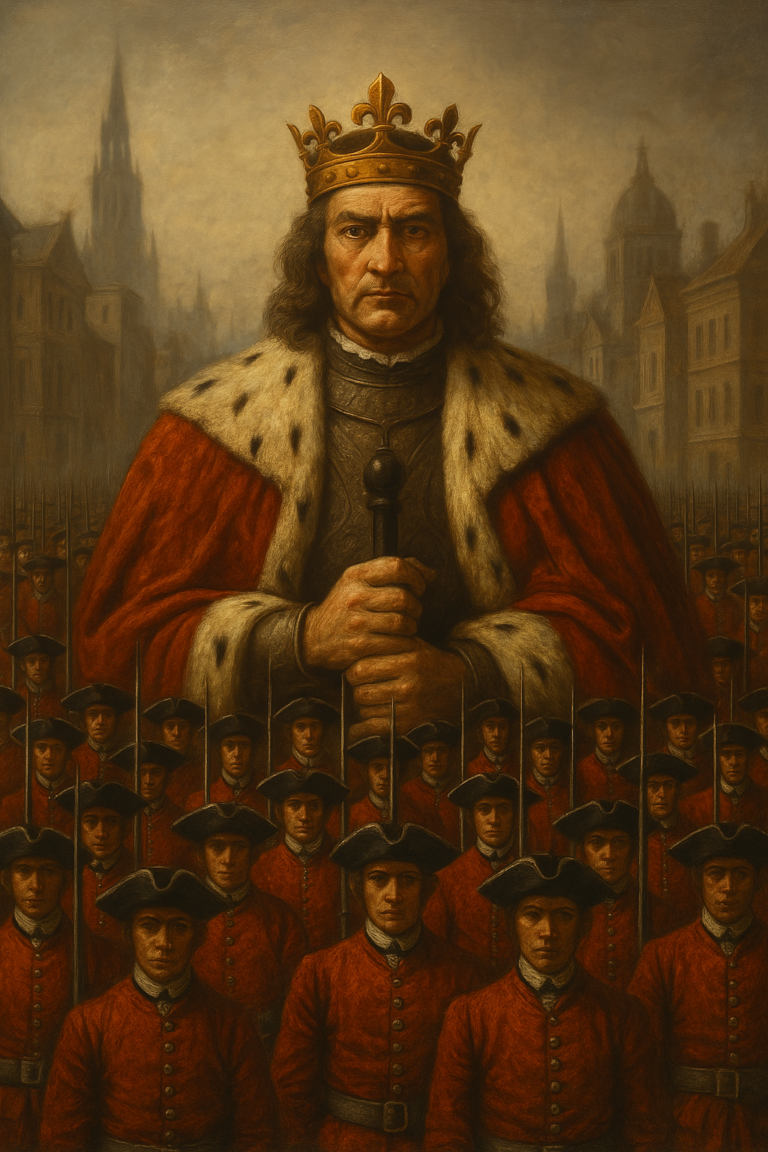Why Questioning the Narrative Is Now a Revolutionary Act
In a world increasingly defined by curated truths and algorithmic consensus, the space for honest disagreement is vanishing. Not because we’ve answered all the big questions, but because many questions are no longer allowed. Debate — once the heartbeat of democratic societies and the lifeblood of philosophy — is now treated as a threat.
If the wrong question is asked, it is no longer answered — it is diagnosed.
Labeled.
Dismissed.
The label conspiracy theory is one of the most potent of these tools. It functions not as a rebuttal, but as a closure device — a way to render an idea beneath debate, and the person who expressed it beneath dignity. It allows institutions, media, and experts to maintain coherence without confrontation — by replacing argument with ridicule.
Here, we explore what happens when societies no longer debate their dominant narratives. We examine the historical and philosophical roles of dissent, the social mechanics of thought suppression, and the consequences of allowing consensus to replace curiosity.
I. The Role of Debate in Philosophy and Democracy
Throughout history, the most powerful tool for truth-seeking has never been authority — it has been debate.
Socrates debated the values of Athens in the Agora, challenging his fellow citizens to reexamine what they believed and why. He asked uncomfortable questions not to win arguments, but to expose contradictions. For this, he was executed — not because his questions were false, but because they were destabilizing.
“The truth is not born nor is it found. It is made through struggle — through dialogue.” – Paulo Freire
Plato, Aristotle, Descartes, Hume, Mill — none of them simply believed what the world handed them. They questioned, challenged, refined, and often contradicted the assumptions of their time. Debate was not a disruption of order — it was a requirement for understanding.
In healthy societies, debate is how beliefs are tested.
In declining ones, it’s how heretics are identified.
Learn About The History Of Debate
II. From Disagreement to Diagnosis
In the 21st century, disagreement is increasingly treated as a symptom. To express doubt about climate policy, vaccine mandates, surveillance systems, or foreign policy narratives is not to engage in debate — it is to be labeled: anti-science, far-right, radicalized, misinformed.
Once that label is applied, the conversation ends. Your question is no longer an invitation to think together — it’s a flag for algorithmic suppression or social distancing.
This marks a profound shift in the purpose of language. Instead of clarifying meaning, it now functions to enforce compliance.
“When words lose their meaning, people lose their freedom.” – Confucius
The result is a pseudo-coherence: a world where silence passes for agreement, and lack of opposition is mistaken for universal truth.
III. The Rise of “Conspiracy Theory” as a Thought-Stopper
The term conspiracy theory was popularized in the wake of the JFK assassination, largely as a way to delegitimize public suspicion. Since then, it has become a rhetorical tool to shut down debate before it begins.
The phrase carries heavy psychological baggage:
- It implies irrationality
- It associates dissent with delusion
- It frames skepticism as socially dangerous
But many so-called conspiracy theories have later proven true. Operation Paperclip, COINTELPRO, the Tuskegee Syphilis Experiment, the NSA’s mass surveillance — all were dismissed at first, only to be confirmed later through documentation, whistleblowers, or declassification.
Yet those who questioned these programs before they were confirmed were mocked, silenced, or worse.
The problem is not that people believe in conspiracies. The problem is that too few are willing to debate whether some might be real.
IV. Debate as a Social Risk
Why do so few challenge dominant narratives? Because doing so is costly.
To raise an uncomfortable question in public often means:
- Being unfriended or ostracized
- Losing job opportunities or professional credibility
- Being banned or shadowbanned on social platforms
- Having one’s mental health questioned
This creates a chilling effect — not just on radicals, but on everyone. People learn to self-censor, not because they’re sure they’re wrong, but because they fear what might happen if they’re right.
This is what philosopher J.S. Mill warned against in On Liberty — the tyranny of social opinion. He argued that without open debate, societies become intellectually stagnant and morally fragile.
“The peculiar evil of silencing the expression of an opinion is… if the opinion is right, [we] are deprived of the opportunity of exchanging error for truth.” – J.S. Mill
V. The Collapse of Debate in the Digital Age
Technology was supposed to democratize discussion. Instead, it has automated consensus.
Algorithms now determine which voices are amplified and which are suppressed. Platform policies — often opaque and unchallengeable — act as moderators of truth. And real-time censorship (via demonetization, shadowbans, and deplatforming) enforces boundaries without the need for argument.
This shift transforms public discourse into a kind of curated spectacle, where only the safest ideas are allowed to circulate. And because the curation is invisible, many assume there is no debate — only truth, and those who resist it.
“Power is not brute force or money; power is the ability to define reality and convince others that it is theirs.” – Wade Davis
In this system, dissent isn’t debated — it’s debugged.
VI. Manufactured Consent, Engineered Agreement
In 1988, Noam Chomsky and Edward Herman coined the phrase “manufacturing consent” to describe how mass media shapes public opinion in favor of elite interests.
Today, consent is no longer just manufactured — it’s programmed. Every click, share, like, and comment trains algorithms to reinforce coherence and punish deviation. The result is not a marketplace of ideas, but an echo chamber of ideological safety.
This is not debate.
This is behavioral engineering masquerading as public discourse.
When ideas are no longer challenged because the opposition has been excluded — we are no longer discovering truth. We are simulating it.
VII. Coherence Without Truth
One of the greatest dangers in modern society is coherence without truth — a state where everyone agrees, not because they’ve debated the issue and found common ground, but because only one story is allowed.
In this environment:
- Education becomes indoctrination
- Science becomes dogma
- Journalism becomes narrative management
- And politics becomes enforcement
The absence of debate creates the illusion of stability — until reality breaks through.
As philosopher Michel Foucault observed, power structures don’t seek truth — they seek control over what is considered thinkable.
VIII. The Philosophy of Rational Suspicion
So what’s the solution? Not blind belief in every alternative theory — but the revival of debate as a tool for truth.
To question official narratives is not inherently paranoid. It is often a sign of intellectual health. And critical thinking does not mean automatically rejecting the mainstream — it means testing every claim, regardless of who makes it.
Nietzsche, Arendt, Popper, and Camus all argued in different ways for the preservation of intellectual space — a domain where no idea is above scrutiny, and no label can end a discussion.
“It is the mark of an educated mind to be able to entertain a thought without accepting it.” – Aristotle
This is the heart of debate. Not agreement, but openness.
Not certainty, but curiosity.
IX. Reclaiming the Heretic’s Role
Today, to ask certain questions is to risk being labeled subversive. But history has always depended on heretics — those who saw through the coherence of their time and dared to speak anyway.
The heretic is not the one who knows the truth — but the one who refuses to accept official coherence in place of evidence. The one who reopens closed questions. The one who insists that belief without debate is not knowledge — it is obedience.
To reclaim debate is to reclaim our agency.
And in an age of narrative control, agency may be the last true freedom.
Conclusion: In Defense of Unsettling Questions
Debate is not dangerous — the absence of it is.
A society that can no longer entertain dissent is not enlightened — it is fragile. And a people who can no longer ask questions are not unified — they are subdued.
This is not a call to believe in every conspiracy. It is a call to defend the right to question every authority. To hold space for uncomfortable thoughts. To resist the instinct to pathologize disagreement. And to rediscover the ancient art of thinking out loud — even when it offends, confuses, or alarms.
Because the moment we stop debating, we stop evolving.
And when we stop evolving, we start consenting — to whatever story those in power decide is safe enough to tell.
